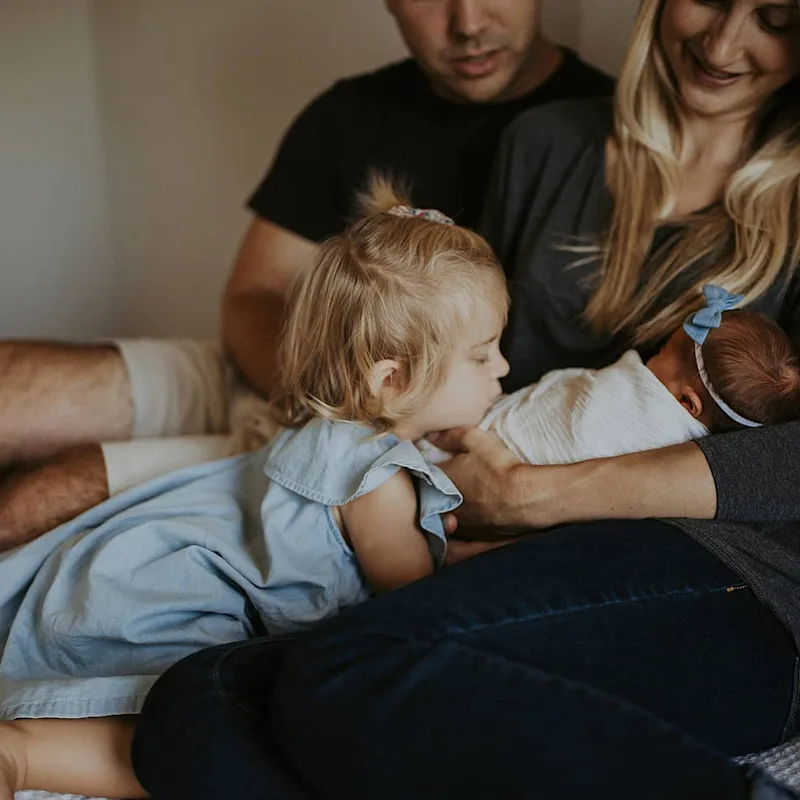
Estate Planning for People with Minor Children
If you have minor children, there are some important considerations to keep in mind when drafting your Will or Trust. Keep reading to learn more.

By Staff Writer
Trust & Will
Do you need to tackle Estate Planning? It’s best not to wait. If you are a parent or guardian to minor children, you already know that taking care of them is the biggest priority of your life. Whether you’re still in the diaper years with your little ones or your kids are getting braces or learning to drive, there’s a lot that goes into making sure your children are well taken care of.
From college funds or savings accounts to the hopes and dreams you have for their lives -- chances are you’ve given plenty of thought to your child’s future. Planning for the future is part of being a parent. That can mean taking care of Estate Planning, too.
Estate Planning can be a difficult topic to bring up to your loved ones, and no one ever wants to assume the worst might happen, but making sure that your affairs are in order – especially during uncertain times – is a responsible step for any parent to take. Let’s review what Estate Planning entails when you have young children.
What is Estate Planning?
Estate Planning can sound very formal and like it’s a formidable task, but it can actually be quite simple. Estate Planning is the process of setting things to be managed or handled according to your wishes, once you are no longer able to do so. Estate Planning documents can cover things like who will make your medical and financial decisions if you’re not able to, and what will happen to your home, bank accounts, and valuable or sentimental belongings in the event of your death.
Estate Planning as a Parent
Just as your life changed when you became ‘mom’ or ‘dad’, your Estate Planning needs will change when you have children. Though many parents don’t pass on until their children are well into adulthood, there are unfortunate instances when one or both parents die leaving minor children behind. This – maybe more than any other circumstance – is when Estate Planning is most necessary.
Since minor children are under the age of 18, by law they cannot make decisions about things like legal contacts and documents, nor can they make legal decisions relating to material or non-material property (real estate, bank accounts, other assets, debts, and inheritance matters.) Creating a Will and/or a Trust with minor children involved will bring an additional set of requirements to the table. But with online Estate Planning services available, your questions can be answered and a customized online Estate Plan can be created for you and your children.
Things to Consider
Every family is unique and each family situation comes with special considerations that will be included in the Estate Planning process. Some things you may want to think about or talk with your spouse about as you start on your Online Estate Plan are:
Power of attorney – If you become ill or incapacitated and cannot make your own medical and financial decisions, the person you give power of attorney to will be able to step in and make those decisions for you. A power of Attorney may be needed temporarily (for example, if a person is temporarily unconscious but later regains consciousness) or at an end-of-life stage. A medical power of attorney gives someone the ability to make your medical decisions, and a financial power of attorney allows them to manage your finances. A parent can give an adult child their power of attorney, but minor children cannot be given the task.
Potential guardians – Think about who in your child’s life would be able and willing to become their physical and legal guardian. Many times, this person will be a close family member such as a grandparent, an aunt or uncle, or maybe an older sibling, but may also be a friend, step-parent or other person you entrust to care for your child.
Individual family factors -- The age of your children, age of potential guardians, and many other considerations may factor into your decision. For example, if your children are school-age, would staying in the area be preferable or would moving to another state be the better option? If you have very young children, would the age of a relative affect the care they may need? And, if your child has special needs or health concerns, would the guardian be able to provide the level of care your child would need?
An Executor – This person will make trusted decisions related to the Real Property, Personal Property, and Financial Assets that make up your Estate. The Executor may be the same person you’ve appointed as guardian, or it may be another person. An Executor will manage the assets of an estate and distribute them to the beneficiaries.
Assets -- You’ll want to make note of any and all assets you have that you will be leaving to your beneficiaries. Determining how you want things to be handled beforehand can keep things orderly and amicable when it comes time to settle any debts and divide your assets.
Inheritance ages – If your minor child or children will be the main beneficiaries of your Estate, they can’t officially inherit until they are 18. If there is a large amount of money or other property involved, sometimes the age of inheritance will be delayed or staggered, with the child receiving some or all of their inheritance at – for example -- 21, 25, and 30.
Making a Will
Once you have all of your information ready, you’ll want to make a Will. In the Will, you will name who will have your Power of Attorney, appoint the Guardian and Executor for your minor children, and state your wishes for your assets. There may be state-specific tax and inheritance laws you’ll want to consider when creating a will. Using State-Specific, Customized Estate Planning Documents and consulting with an Estate Planning Attorney can make things easier.
Creating a Trust
Assets may be given directly to beneficiaries or they may be placed into a trust. There are different types of trusts you may want to use to hold real estate, money and stocks, or other inheritance for your children. Trusts such as a Child’s Trust or a Special Needs Trust can be created for minor children, as can a Family Pot Trust. These types of trust allow for medical and education expenses to be paid for the child out of the trust. Other types of trusts including an Irrevocable Trust and a Spendthrift Trust can be set up for a child to inherit once they are 18 years old or older.
Your family is unlike any other and your Estate Planning should be customized to fit its needs. At Trust & Will, we can help you get started on your Estate Plan. Contact us today to learn more about Online Estate Planning and securing the future of your minor children.
Related Topics
Last updated: December 10, 2025



